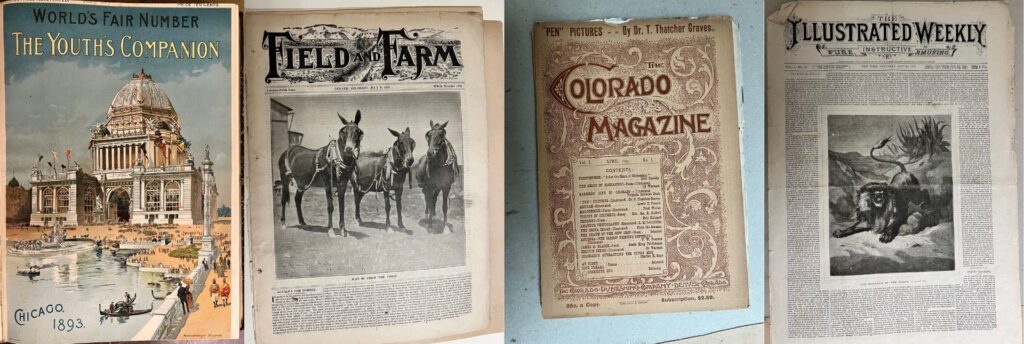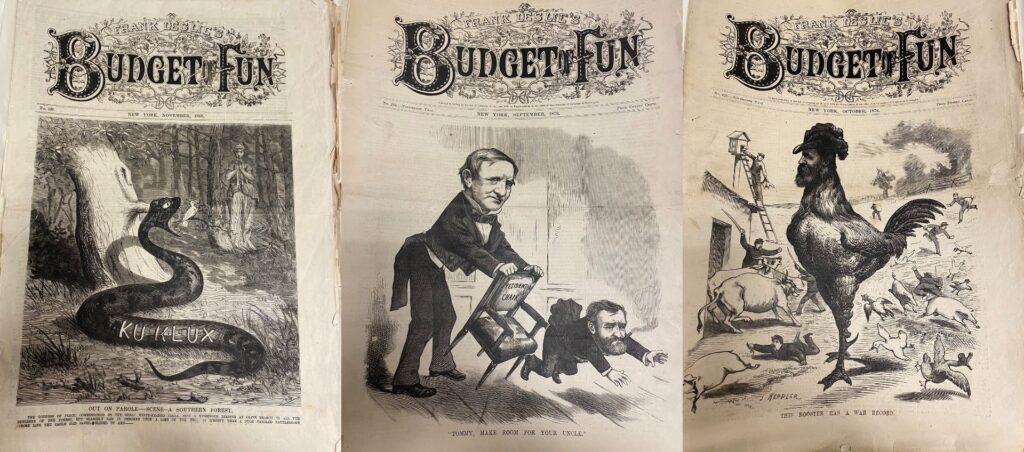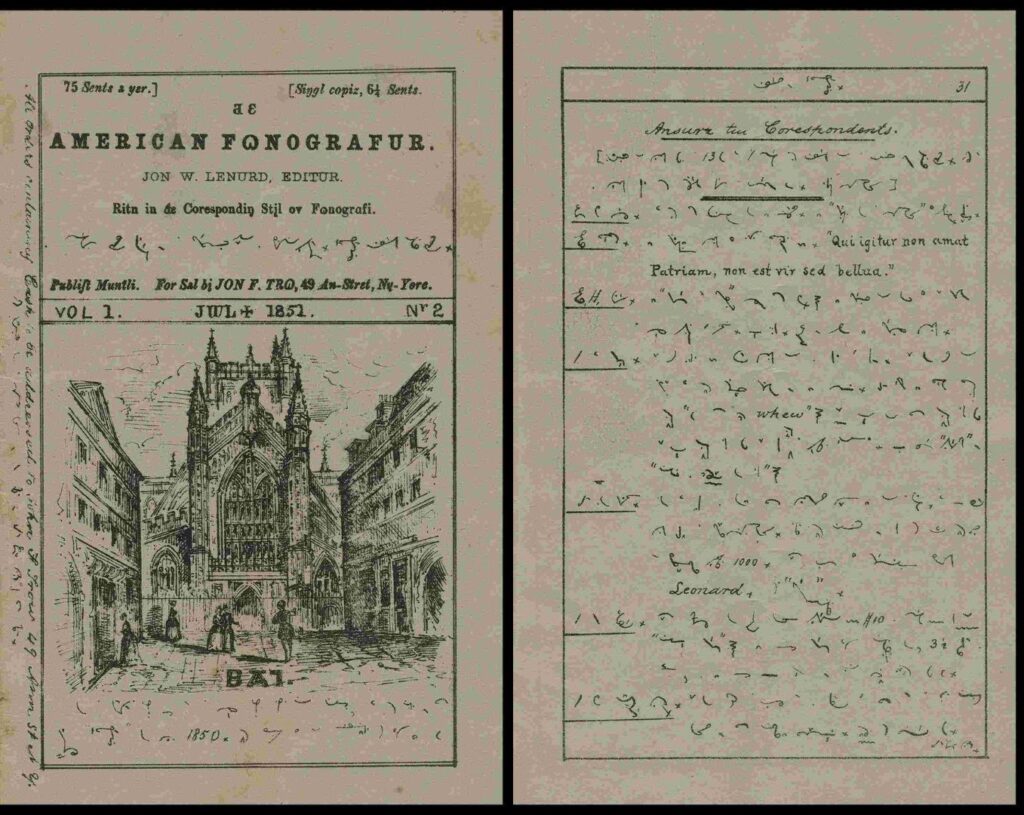│By Philip Virta, Senior Acquisitions Editor│
What is the American Antiquarian Society and Where Did it All Begin?
Isaiah Thomas (not the basketball player) was a printer, publisher, and a patriot. He fought as a Minuteman at the battles of Lexington and Concord, and published the Massachusetts Spy in support of the American Revolution. Thomas appreciated information in all its printed formats (this was the early 1800’s, so no television, radio, internet, cell phones, etc.) and began to save what he could get his hands on. Eventually, in 1812, he founded the American Antiquarian Society to house his growing collection.

Thomas’s grandson, B. F. Thomas, noted the reasoning behind his grandfather’s founding of the American Antiquarian Society: “He saw and understood, no man better, from what infinitely varied and minute sources the history of a nation’s life was to be drawn; that the only safe rule was to gather up all the fragments so that nothing be lost.“
The Society today houses the largest and most accessible collection of Americana available published in books, pamphlets, broadsides, newspapers, periodicals, music, and graphic arts material printed through the twentieth century in what is now the United States.
What are the American Historical Periodicals?
American Historical Periodicals from the American Antiquarian Society provides a history of the American people and a testament to the growth of the nation from the colonial period through to the twentieth century. The periodicals focus on American concerns and were predominantly published in the United States or Canada, though some were published overseas by Americans living abroad. The collection offers multiple perspectives on the thought, culture, and society of North America through the eyes of those who lived it, showing how history affected citizens from all walks of life.
American Historical Periodicals from the American Antiquarian Society, Part VIII

American Historical Periodicals, Part VIII is comprised of 260 periodicals from the nineteenth and twentieth centuries, covering 1810-1926. There are 148 titles new to the American Historical Periodicals from the American Antiquarian Society, and 112 that fill gaps in previously digitised periodicals. The titles cover subject areas such as agriculture, arts and literature, business and commerce, children and young people, entertainment and society, ethnic communities, health and medicine, history, and religion. Many of the periodicals are from state or ethnic historical societies, providing a more localised perspective on American history. This diversity of periodicals provides multiple lenses through which to view the American experience.
Frank Leslie
Frank Leslie (March 29, 1821 – January 10, 1880) was an English-born American engraver, illustrator, and publisher of family periodicals. He was well established in New York publishing circles when he entered the satire field in January 1859 with his Frank Leslie’s Budget of Fun. The Budget of Fun was a sixteen-page well-illustrated folio, initially selling for six cents a copy.
All indications suggest that the Budget of Fun immediately dominated the field (which in 1859 included Yankee Notions, Nick-Nax for All Creation, Phunny Phellow, the New York Picayune, and the Comic Monthly). The magazine, like its publisher, was sympathetic to the Democratic Party, and suspicious of Lincoln and the Republican Party agenda. Aside from its coverage of politics, it also poked fun at various aspects of society and culture.

As a very interesting side note, you can research the guiding hand of Frank Leslie’s second wife, Miriam Folline Squier Leslie, through a variety of the Frank Leslie publications. Her life was colourful, fascinating, and well worth learning about. She was an actress, translator, editor, travel writer, dispenser of domestic advice, publisher, lecturer, clubwoman, hostess, and champion of women’s suffrage. Upon her husband’s death in 1880, Miriam changed her legal name to “Frank Leslie”, paid off her husband’s debts, and built his brand into a publishing empire, making herself very wealthy in the process.
Historical Societies
The definition of an historical society is a group of people who work together to preserve the history of a place. State, local, and ethnic histories are well represented in American Historical Periodicals, Part VIII, and throughout the American Historical Periodicals from the American Antiquarian Society archive – here is just a sampling of twenty-four publications with “Historical Society” in their title, with more than 88,000 pages of material between them.
| Title | Sum of Pages |
| Historical Collections: Pioneer and Historical Society of the State of Michigan | 23263 |
| Quarterly of the Oregon Historical Society | 11779 |
| Collections of the Connecticut Historical Society | 10062 |
| Historical Papers and Addresses of the Lancaster County Historical Society | 9666 |
| Proceedings of the New Jersey Historical Society | 8155 |
| Register of the Kentucky State Historical Society | 6183 |
| Transactions of the Kansas State Historical Society | 5721 |
| Historical Collections of the Topsfield Historical Society | 5075 |
| Collections of the Kansas State Historical Society | 4607 |
| Collections of the State Historical Society of North Dakota | 4284 |
| Contributions of the Historical Society of Montana | 4193 |
| Papers of the Historical Society of Delaware | 3664 |
| Journal of the Illinois State Historical Society | 3493 |
| Register of the Lynn Historical Society | 3283 |
| Register of Kentucky State Historical Society | 2139 |
| Transactions of the Alabama Historical Society | 1438 |
| Papers and Proceedings of the Connecticut Valley Historical Society | 1183 |
| Records of the Columbia Historical Society, Washington, D.C. | 1057 |
| Biennial Report of the Board of Curators of the State Historical Society… (Des Moines, Iowa) | 671 |
| Proceedings of the Oregon Historical Society | 558 |
| Florida Historical Society Quarterly | 481 |
| Publications of the Alabama Historical Society | 461 |
| Recorder. Bulletin of the American-Irish Historical Society | 245 |
| Proceedings of the Littleton Historical Society | 204 |
Beyond the aforementioned publications, there are state organisations and society journals, historical annals, transactions of historical associations, bulletins, reviews, leaflets, and more. These publications are vital in connecting us to the people, places, and events important to state and ethnic histories. They protect and preserve the historical record and provide access to more localised histories that simply won’t appear elsewhere. If you want to get a good understanding of American historical character, businesses, social life, and folklore, these publications are the resource for you.
Aside from history, they will have some use for those interested in genealogical research. Historical society publications make up more than half the content in this latest release of American Historical Periodicals from the American Antiquarian Society.
Phonographic Writing
When I first came across this publication, I thought it was written in Arabic. It took a little research on my part to determine the truth. The American Fonografur is a short-lived and rare periodical dedicated to phonographic writing published in New York in the mid-nineteenth century. There were four issues published in total, and the American Antiquarian Society has managed to acquire two of them.
Prior to the invention of the typewriter, shorthand and speed writing were methods developed for rapidly recording information. Phonographic writing was developed to provide a simple way to write and read a language; essentially, it is writing by sound. During the nineteenth century, there were many attempts to inscribe sound in such a way that it could be reproduced.
Experimentation in phonographic writing systems influenced literacy, engagement with educational activities, and understandings of language. Shorthand systems were primarily orthographic, using particular marks to indicate common clusters of letters – prefixes, suffixes, common endings, and everyday words – although they also often included marks representing vowel-sounds.
Phonographic shorthand transcribed sound rather than abbreviated spelling – it bypassed conventional orthography in order to give written form to the accents and inflections of pronunciation. For my part, as we rely so much today on electronic communications, I think it’s fascinating to investigate how creative individuals attempted to facilitate rapid or less complicated methods of communication in the past.
New Release
This concludes a brief tour through the American Historical Periodicals, Part VIII, which releases June 28th. There is an entire national history waiting to be discovered within the pages of the collection. As we add publications to the program, it will continue to develop as the largest available collection of Americana in one repository.
If you enjoyed reading about American Historical Periodicals, check out these posts:
- Using Gale Historical Newspapers to Highlight Marginalised Voices in Journalism
- Using Literary Sources to Research Late Nineteenth-Century British Feminism
- The Road to American Independence
Blog post cover image citation: A collage of periodicals from the American Historical Periodicals from the American Antiquarian Society archive.





